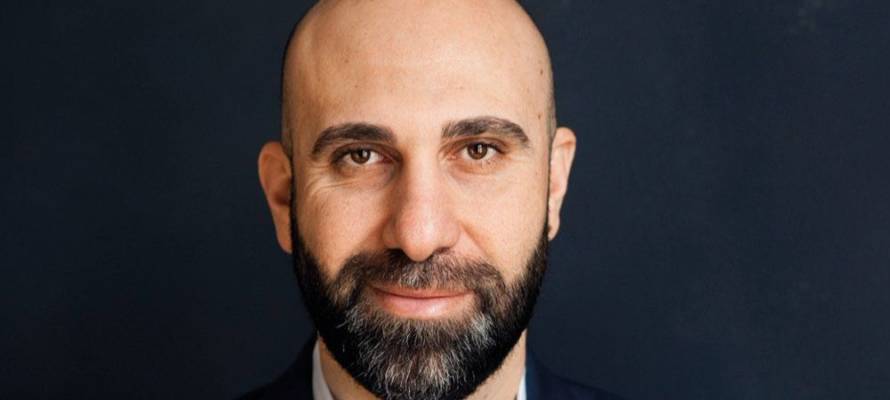In stinging op-ed in a German newspaper, Dr. Ahmad Mansour says: “We all have to face reality: Anti-Semitism is not ‘back’ – it is still here, it is getting louder and more aggressive.”
Seventy-five years after the fall of Nazi Germany, an Israeli Arab living in Hamburg is trying to open Germany’s eyes to what he, an expat Arab from Israel living in Europe, sees clearly: anti-Semitism has not gone away and has to be dealt with up front now.
Ahmad Mansour was born in the Israeli town of Tira, northeast of Tel Aviv, where two decades ago he was working to become a psychologist and one fateful day found himself in the middle of a terrorist attack.
“Again, a Palestinian, driven by hatred and whipped up by ideology, had set out to murder Yahudis, Jews. So here again someone wanted to kill as many people as possible with a weapon with the aim: “Delete Israel from the map!” I had grown up with such slogans as an Arab Israeli,” Mansour wrote in the German-language daily newspaper Neue Zürcher Zeitung.
Mansour, who was also exposed in his youth to radical Islam, decided he had enough of living with “upheaval and hatred” and thought that “in Germany of all places I would find peace before the notorious hatred of Jews and everything Jewish.”
“I had heard that in Germany, the past in particular had been dealt with, awareness of anti-Semitism was strong and social peace was certain,” Mansour wrote.
As he settled in Europe, Mansour realized that the hatred from which he wanted to flee was everywhere, and he had to do something about it, asking out loud: “Where does this obsession in criticizing Israel come from?”
He now lives in Hamburg and his encounters with hate have led him to found the organization Mind Prevention – the Mansour Initiative for Democracy Promotion and Prevention of Extremism.
“Today, in 2020, I’m experiencing a new nightmare of anti-Semitism. We all have to face reality: anti-Semitism is not back – it is still here, it is getting louder and more aggressive, in almost all milieus. Hatred of Zionists, hatred of Jews, hatred of Israel…it makes no difference” what you call it, Mansour wrote, calling on his adopted country to take action.
“Germany’s democracy must take its historical responsibility seriously. State-sponsored cooperation with Islamist and other anti-Semites cannot be tolerated,” Mansour said.
Mansour’s work centers on deradicalization – education about anti-Semitism, Islamism and right-wing radicalism.
“Anti-Semitism, disguised as ‘criticism of Israel,’ is intellectual fashion, especially at universities; questionable post-colonialist theories make Israel the main actor that threatens world peace,” he noted.
But Israel aside, Mansour sees that the old stereotypes of Jew-hatred have not gone away.
‘Their Phantasms Come From the Internet’
“The old distorted images continue to portray Jews as the embodiment of evil…Anti-Semitism is once again coming to light. In Germany, France and many other Western countries, more and more people are daring to speak openly about what they ‘know’ about Jews, Israel and Zionism,” he said
As a psychologist, Mansour says German youth aren’t interested in what Jewish life in Germany really is, but instead, “their phantasms come from the Internet, they have little connection with real life.”
According to Mansour, “Germans of almost all ages are drawn in particular to Israel’s enemies in the Arab world. This anti-Semitic magnetism culminates in the oft-repeated phrase that Israelis are the new Nazis…
“As a psychologist, as an Israeli Arab and historically enlightened Muslim, I am stunned to hear how Germans say such sentences today,” Manour said. “Where does this German obsession with criticism of Israel come from? Why is one so fixated on the small democracy in the Middle East that has to assert itself against all hostile non-democracies in its neighborhood?”










